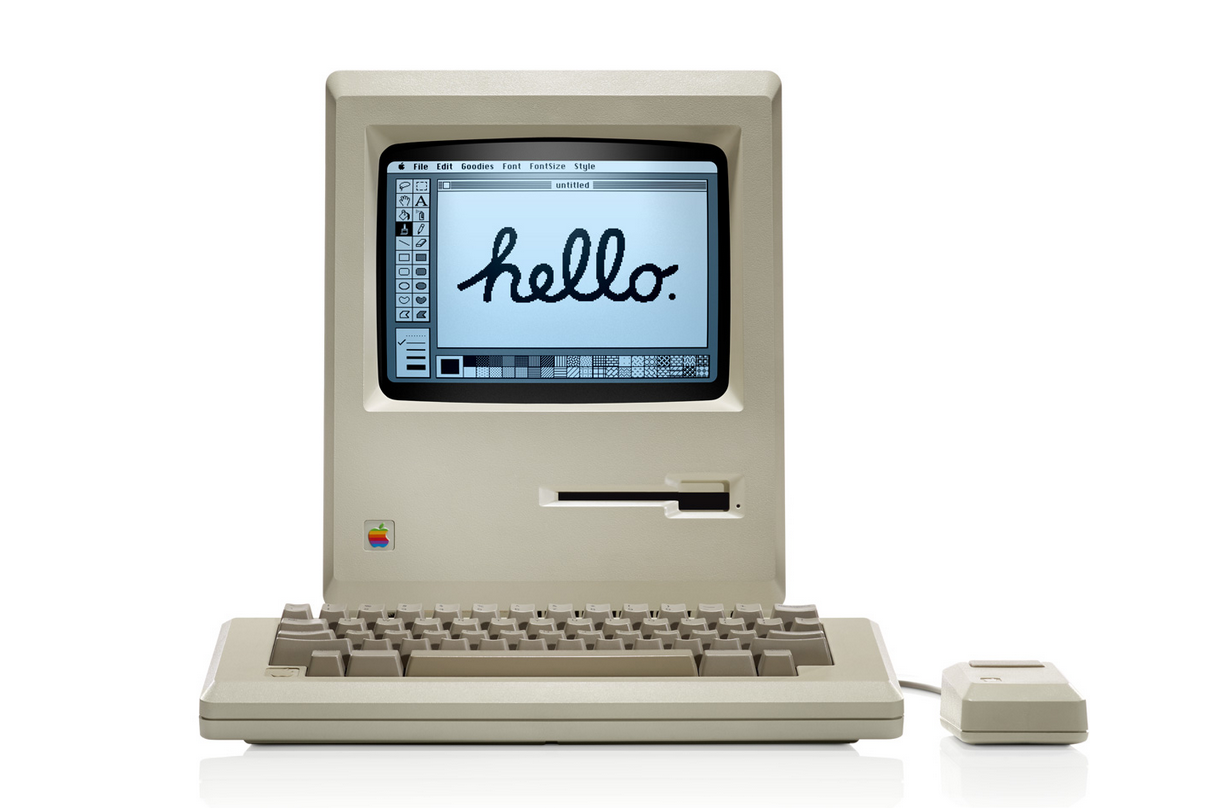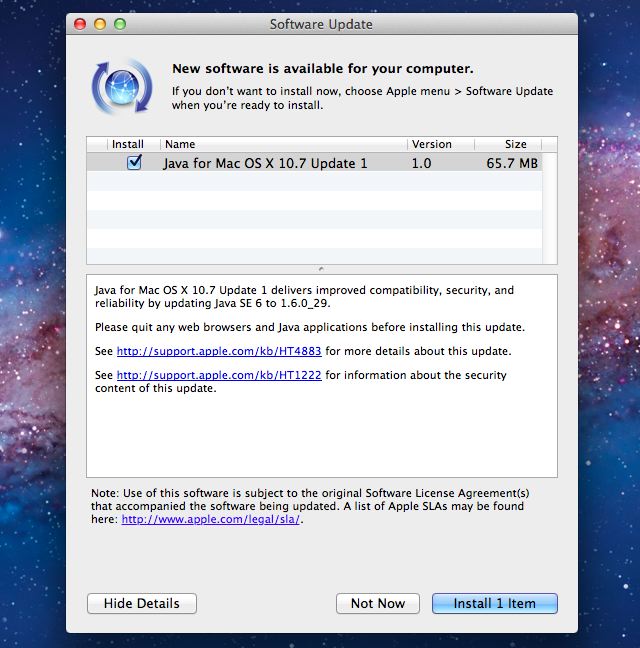Apple Java Updates For Mac
In a recent, Apple said that update addresses a recently-identified vulnerability with the Java web plug-in. For those systems with OS X Lion and Mountain Lion, Apple suggests that customers make sure that they are running the latest version of Java 7, and then update Java through the Java Control Panel app.

According to, the update modifies the XProtect component of OS X, aka File Quarantine, to block outdated versions of the Java browser plug-in — in other words, those vulnerable to the vulnerability. The minimum required version of Apple’s Java plug-in for Snow Leopard is now 13.9.7 (Java 6 Update 51), up from 13.9.5 (Java 6 Update 45). Apple provides its own version of Java for Snow Leopard and has continued to release security updates for it. On Lion and Mountain Lion, the minimum version of Apple’s Java plug-in has increased from 14.7.0 (which corresponds with Oracle’s Java 7 Update 21) to 14.8.0 (which corresponds with Java 7 Update 25).
Beginning with Lion, Apple no longer bundles Java with OS X; it is now a third-party offering available from Oracle. Apple's best practice continues to suggest that customers enable Java when necessary. Enable Java in your web browser only when you need to run a Java web app. Confine your web browser only to the websites that need the Java web app. Do not open any other websites while the Java web plug-in is enabled. When you are done, disable the Java web plug-in. Sdds.
Related Topics. By registering you become a member of the CBS Interactive family of sites and you have read and agree to the,. You agree to receive updates, alerts and promotions from CBS and that CBS may share information about you with our marketing partners so that they may contact you by email or otherwise about their products or services. You will also receive a complimentary subscription to the ZDNet's Tech Update Today and ZDNet Announcement newsletters. You may unsubscribe from these newsletters at any time. ACCEPT & CLOSE.
I still recall, around the time Darkmrkt (or however it is spelled) by Misha Glenny was released, he gave a talk on a national radio station here, and first encouraged people to use OSX as no one was hacking it, then explained that soon people would be hacking it. Short while later, FLASHBACK. However, it is about time they started patching things on time.
Really, apple should leave writing Java patches to oracle, but give them access to the auto update mechanisms so the patches do arrive on time. If the rumor that this is true, is in fact true, it is about damn time! Not my day, I guess.
I opened my Java control panel (on XP/SP3), and checked for updates. When one showed available, I started the process. Got past the download and, I thought, through the uninstallation of the current version.
The process then appeared to be over (turned out it wasn’t). During the lull, I opened the Java control panel again.
A prompt appeared then telling me to close the panel so that the installation process could complete. Shortly thereafter, a window told me the installation could not complete because it was interrupted. I went to Java Help (as the window suggested). From there, I went to my add/remove programs to manually uninstall, except the old program no longer showed up there. Nor did the Java Control Panel icon on my control panel. The old program appeared to be gone gone gone. I downloaded the “offline” installer for the new program, as instructed.
In no time at all, I had the same failure prompt as before. The only reason I have this program at all is to occasionally run a Secunia online scan. At all other times, I disable Java. I assume there is still some deep-hidden residue of the old program that is gumming things up.
Wouldn’t know where to find it. Any suggestions on how I can get the new version installed? Paolo Milani wrote: “in a Java security lecture I explained and demoed CVE-2008-5353. To demo it I used a VM with an old ubuntu image as a victim” This should be posted on a large, flashing neon sign.


Many desktop Linux enthusiasts would flatly not believe this. Of interest with reegard to desktop Linux and Java is that Oracle, awhile ago, stopped allowing distros to manage their proprietary Java (JRE and JDK) software in the distros repositories. Some distros, Ubuntu as an example, automatically removed Oracle’s proprietary Java from their users systems during an update and provided users the option to install OpenJDK which is managed in the repository. There may be more than a few desktop Linux users unwittingly using an outdated version of Oracle’s proprietary Java on their systems. Fact is that Oracle’s proprietary Java must now be manually downloaded and installed on desktop Linux, just like on Windows. The OpenJDK JRE is a safer option, providing that one’s Java spplications and appletss are fully compatible with it. For Mac users who are still running older system software (Leopard 10.5 or earlier): In mid May, Apple issued a “Flashback Removal Security Update”.
Java Updates For Mac 10.8
This reportedly removes the Flashback malware if it’s been installed on your system, and it disables Java in the Safari preference panel. I’m not sure if it actually patches Java to prevent future infection or not. If you need to use Java for a specific website, you can always turn it back on in the Safari preferences, and it’s not necessary to reboot after turning it back on — just reload the web page that needs Java. And don’t forget to turn Java off again after you’re done using that site.